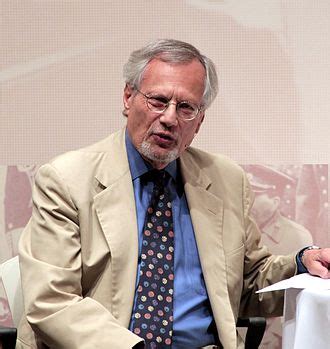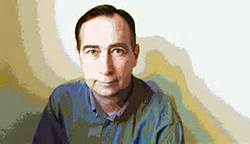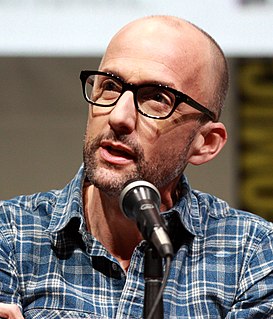A Quote by Janet Malcolm
You could say that any book that takes a position is not fair, unless you keep saying, 'On the one hand, on the other...' and take a great deal of trouble to present both sides. That kind of journalism tends not to be very interesting.
Related Quotes
I wrote "Win" for people on both sides, legitimately on both sides. If you're a Democrat listening to this right now, you - the whole playbook is in this book. If you're a Republican, and you're frustrated because Barack Obama is a great communicator, the playbook is in this book. And if you're a corporation who wants to satisfy his - their employees, how to do it is in this book. And finally, if you're an employee and you want to get a raise, whether at NPR or anyplace else, it's in this book.
Certainly each side - the 'absolutists' and the 'constructivists' or 'humanists', as I've labelled them - accuses the other of hubris, and lays claim to humility. I see hubris on both sides: a pretence that we could ascend to an objective account of the world, on the one hand, and a pretence that we have the resources to live and act without a sense of there being something to which we answerable, on the other. So both sides are 'villains'.
You could say that this book is ripped from the headlines, but that wouldn't be fair. Bret Anthony Johnston's riveting novel picks up where the tabloids leave off, and takes us places even the best journalism can't go. Remember Me Like This is a wise, moving, and troubling novel about family and identity, and a clear-eyed inventory of loss and redemption.
I am like all other atheists only in that I do not believe there are any gods. Beyond that, I may differ dramatically in my values and beliefs from any other atheist. On both sides of the political spectrum, one can find the neo-conservative Objectivists and the ultra-liberal Communists, both of whom hate each other. These two factions take up nearly opposite sets of values, yet both are comprised of unabashed atheists.
You know, in Los Angeles, you're constantly in your car, you're sealed up, you're not walking around. Whereas in New York, after a while, all your stuff is kind of public, in one way or the other. I'm not saying either one of those is bad; they're both great for a very specific kind of comedian. And I'm glad that they both exist.
I've always liked the old-school journalism approach. I don't have to take a side on any controversial issue. I get to present various sides. And my goal, as a journalist covering the Bible beat, is to present the strengths and weaknesses of each side - to the extent that readers can't tell what my opinion is. That's easy enough for me to do much of the time because I'm as confused as the next guy, and trusting a lot on Jesus for what I don't understand.
We are the most focused company that I know of or have read of or have any knowledge of. We say no to good ideas every day. We say no to great ideas in order to keep the amount of things we focus on very small in number so that we can put enormous energy behind the ones we do choose.....It's not just saying yes to the right products, it's saying no to many products that are good ideas, but just not nearly as good as the other ones.
You have to keep being curious. The notion that the present is different than the past, and the future will be different than the present, and the present is past, as we say it. I think I, by nature, am an optimist. Maybe I was driven to escape from my childhood and to be something, create my own world or career the way I wanted it to be. And I keep doing that in very interesting ways.
I'm always very careful to make the distinction between music criticism and music journalism. A lot of people don't. But criticism doesn't require reporting. You can write criticism at home in your underwear. On the other hand, journalism takes legwork - you have to get out there and see things and talk to people.






































